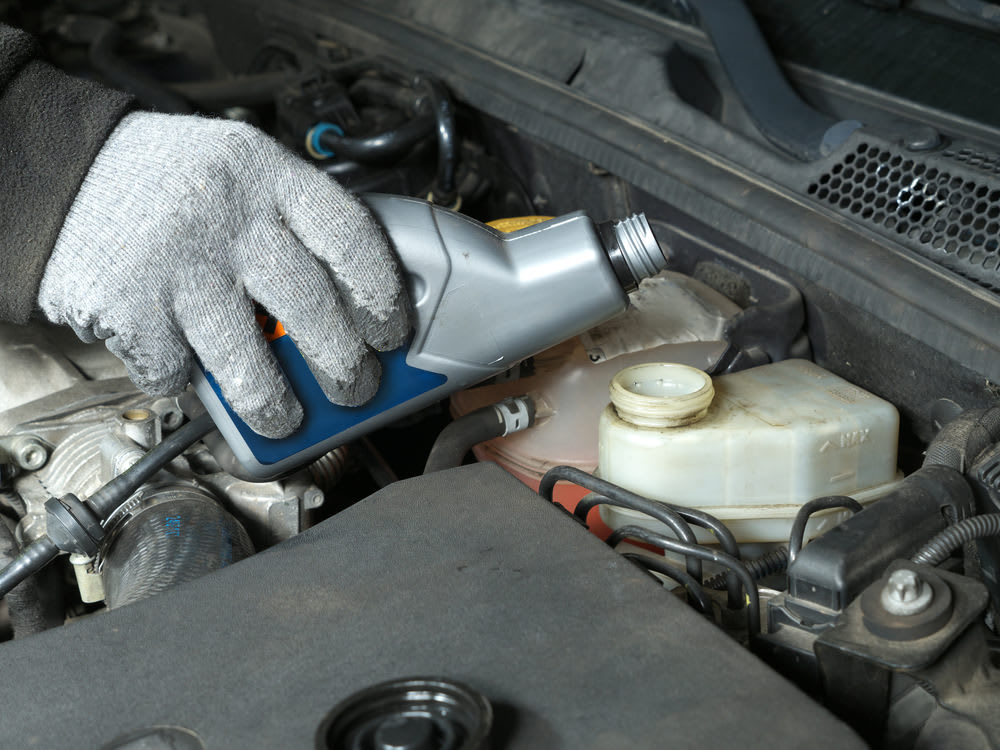

Brake fluid, also known as hydraulic fluid, is responsible for moving the various components of your vehicle’s braking system. The fluid operates under high temperatures and high pressure and, without it, your car or truck would not be able to stop when you push the brake pedal inside your vehicle. Brake fluid is a non-compressible substance that lies within the brake lines, delivering the force created by your push on the brake pedal to each of the brake rotors on the four corners of your vehicle. This applies pressure to the wheels and ultimately slows or stops your movement. Here is a step-by-step and somewhat simplified look at how brake fluid works within a hydraulic brake system:
The driver depresses the brake pedal.
The pedal compresses a piston inside the brake caliper.
This compression increases the pressure inside the brake lines and sends the brake fluid into motion.
The pressure of the brake fluid then causes the brake rotors to squeeze down on brake pads, which then make contact with the wheels, slowing and eventually stopping wheel rotation and also the vehicle itself.
The types of brake fluid
While brake fluid function is relatively easy to understand, there is a wide variety of types to choose from, which may be confusing when it is time to replace the brake, or hydraulic fluid. The two chief types of brake fluid are glycol-based, which can be further divided by grade, and silicon-based fluids. Glycol-based brake fluids are typically used in vehicles with anti-lock brake systems (ABS) while silicone-based ones work only in cars and trucks without ABS technology. If a vehicle without anti-lock brakes has ever had a glycol-based brake fluid, you cannot switch to a silicone-based one because small amounts of glycol will remain behind and chemically compromise the integrity of the silicone. Glycol-based fluids are classified by a Department of Transportation (DOT) number up to 5.1, which indicates the boiling point of the fluid. Higher DOT numbers indicate better quality of hydraulic fluid that can withstand higher temperatures. To know what type of brake fluid is best for your vehicle, consult your owner’s manual or give one of our mechanics a call.
How often to change brake fluid
Over time, brake fluid can absorb moisture from the air, which will cause the fluid to degrade and not work properly. This is why it is important to periodically drain the oil fluid out and replace it with new fluid to ensure proper brake fluid function. Most mechanics suggest changing the fluid for brakes every one to two years, although every vehicle has different maintenance needs. Since the purpose of brake fluid is so integral to safety, check your owner’s manual for the recommended brake fluid changing schedule. If it is still unclear how often you should change out fluids or you suspect there is something amiss with your braking system, don’t put off calling a mobile mechanic from YourMechanic for help.



